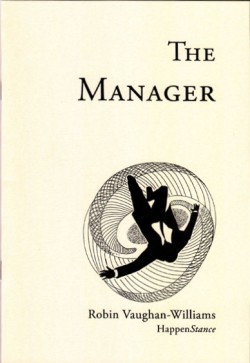At last, some live poetry! The Nýhil International Poetry Festival is upon us, and yesterday was night one, the open mic/michelle. I hadn’t been to any live poetry events since May, and last night I realised how much I’ve been missing it.
I read about the event on the Nýhil blogspot, and worked out that it was one poem each (in spite of being an ‘international’ festival, there’s been very little information available in English about it), but hadn’t realised that you were also supposed to read one poem by someone else too. So when it came to my turn, just like on Who Wants to Be a Millionaire?, I decided to text a friend, and was able to read out this haiku by Matt Clegg, direct from Sheffield:
A lone cobweb hangs
from the campsite tap — supports
one obese droplet.
I think it’s from ‘Trig Points’, which you can listen to on the Spoken Word Antics Sound Archive.
I also read ‘Shelter’, a poem of mine about a woman in a strange land who can’t speak the language trying to find her way. It reminded me of how I feel myself here sometimes, although the big difference is I can always open my mouth and speak English, which the woman in the poem can’t.
The running order was anarchic in logic – people just got up to read when they felt like it – but not in style; maybe a certain ease comes from people choosing their own moment…although I did occasionally notice those with less self-awareness prevailing over those with more.
Some I could understand, some I couldn’t; there was an English translation, which we were assured was nothing like the original, a rather un-hip rap (the kind where the words are forced into a rhythm, rather than written with rhythm in them), a poem from the milk carton, one neurotic piece that reminded me of the landlady from hell we narrowly escaped committing to a few months ago, and an interminable tract of social theory (the spectator, media, hegemony…Baudrillard perhaps?) that had us all feeling much enlightened once it was finally over.
All those words, all those people with things to say; one glorious, eclectic jumble of articulation and, on my part, much miscomprehension (but serendipitously so). Here is a rough approximation of what’s going on in my head when I’m listening to poetry in Icelandic:
‘Hvað sem ég er, í bílinum, reyking í geymsla…smoking in the cellar, or is that an invoice, something about a car, and what is it that I am?’
As you can see, it doesn’t make a lot of sense, but there is something wonderful about the combination of images and words, the fragmented thoughts, and unexpected collisions. I’m often not very good at paying close attention to what I’m listening to anyway. If I’m really enjoying a piece of music or poetry, it’s often because it’s stimulating my thoughts; my mind may be somewhere completely different, though still working in parallel to the performance and in some way guided by its structure, its shifts and moods. Listening to something you can only fractionally understand could be seen as a liberating aesthetic experience, because it frees you from any obligation to pay close attention, while a residual structure comprised of tone of voice, rhythm, sound texture, intonation, and so on – everything that is left when you take away the words – keeps you connected.
